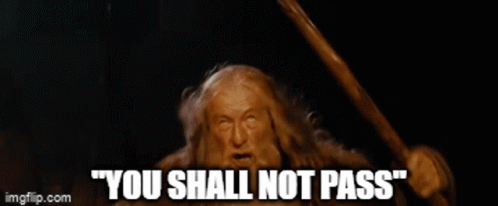[Chapter 2] The philosophy of a tester: Socrates
How to excel at "dumb testing"
There is this little thing that I call "dumb testing" which is to go through the testing and quality control of features like a complete ignorant, the dumbest and goofiest person in the room. And doing so, questioning the basic and barebones of each thought or agreement made previously. Why? Because we humans tend to think that we know more than we usually do.
But let's be clear, this is not something that I invented myself but it's just the application of the thoughts of Socrates.
To Socrates, the only thing philosophy was, was discussion, questioning, and argument. His particular brand of it was called the Socratic method. So asking people to give his definition of what things where, is able to use the contradictions in their own definitions to make a case that the answers to things couldn’t be that simple.
Once Socrates realized that the reason he was wiser than everyone is because he can admit that he knows nothing, he went on a mission to correct the citizens of Athens and fix their assumptions and preconceptions. In his words "I am wiser than this man; it is likely that neither of us knows anything worthwhile, but he thinks he knows something when he does not, whereas when I do not know, neither do I think I know; so I am likely to be wiser than he to this small extent, that I do not think I know what I do not know.”
So one of the roles of the QA is being the socrates of the teams, challenging and questioning affirmations and pre concepts, no matter how dumb it looks, because in the end shaking the root of all, you can build stronger and better. This method is highly effective especially at the beginning of the development, in meetings like refinements or planning of functionalities to be developed. In technical and more theoretical matters, it can be found in the ISTQB formation as static testing (opens in a new tab).
Being eager to fail
Socrates, defending himself in a trial, where Athenians wanted to kill him for being too annoying said: “To fear death, gentlemen, is no other than to think oneself wise when one is not, to think one knows what one does not know. No one knows whether death may not be the greatest of all blessings for a man, yet men fear it as if they knew that it is the greatest of all evils. And surely it is the most blameworthy ignorance to believe that one knows what one does not know.”
And although this can resonate all our life is just a nice thing also to remember in our work. Sometimes our approach into work problematics is with certain doomerism specially when we are planning and putting deadlines, "Oh no we are never going to do this before this date", and even tho cautious it's always a good ally sometimes we go above that and do not take the leap of being better than what we think we are.
In this case Socrates is saying to all of us that we don't know everything, that maybe there are better outcomes in the end or not but there is only real answer to deal with it is just doing it, and embark in this path of knowledge because he thought that an unexamined life results in a soul that is “confused and dizzy, as if it were drunk, where the wise soul (the one that looks for answers) is stable. And eventually, through wisdom, all the straying that makes the soul dizzy and confused can be brought to an end. By not seeking truth, you’re harming your soul. And by pursuing it, you’re nurturing your soul.
Looking as the dumbest person asking the weirdest questions in the room ends up then being the most straightforward action to your self development and the development of the things that you are building.

¡Because I said so!
In the end Socrates was found guilty in that trial and sentenced to death, by drinking hemlock (poisonous plant). Which is the modern "curiosity killed the cat", but I think that makes a point, he could have been like the sophists he annoyed so much and argumented his way out of the trial. But he didn't want to win with shiny but empty arguments. He really was kind of like an annoyingly inquisitive child that just kept asking, “Why? Why? Why?” and Athenians just answered because I said so!.
He lost an argument he could have easily won because of how much he cherished his moral principles. But to him, living life wasn’t good enough in itself. Living a noble life was the bare minimum. To go against his basic survival instincts was to go against hundreds of thousands of years of evolution. And I can’t think of anything more admirable than what he did.
And although in my case there is no job that merits to die for, I find this highly reassuring that sometimes there are lot of uncomfortable questions to make, and uncomfortable sentences to be said, where the answer will be "Because that's what business said", and our stance as guardians of the quality not only on the product but also the processes that make our product, should be "Why? Why? Why?" and not let pass unchecked decisions. He famously said, “There is only one good, knowledge, and one evil, ignorance.” Like we just said, if people knew enough, they would never make a wrong decision or commit an evil act.
